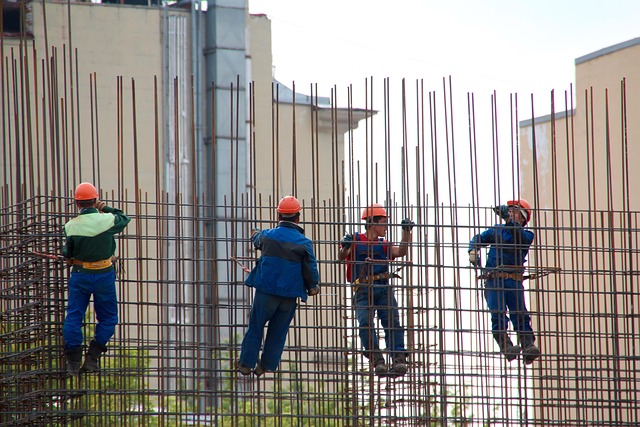Construction Services in Canada: Roles, Responsibilities and Project Types
Construction projects in Canada involve a variety of services that cover both residential and commercial needs. From independent home construction to complex urban developments, the industry operates through coordinated networks of specialists — including contractors, builders, and management firms. Understanding how these services are organised helps clarify the construction process and the responsibilities of each party involved.

What are the main types of construction projects in Canada?
Construction projects in Canada can be broadly categorized into two main types: residential and commercial construction. Residential construction includes single-family homes, multi-unit dwellings, and custom home builds. Commercial construction, on the other hand, encompasses office buildings, retail spaces, industrial facilities, and institutional structures such as schools and hospitals. Each type of project requires specific expertise and adheres to different regulations and building codes.
Who are the key players in residential and custom home construction?
Residential and custom home construction involves several key players. At the forefront are general contractors who oversee the entire project from start to finish. They work closely with architects and designers to bring the homeowner’s vision to life. Specialized subcontractors, such as electricians, plumbers, and carpenters, are brought in to handle specific aspects of the build. For custom homes, there may also be involvement from interior designers and landscape architects to create a truly personalized living space.
What roles do general contractors play in project coordination?
General contractors are the linchpins of construction projects, responsible for coordinating all aspects of the build. Their duties include hiring and managing subcontractors, obtaining necessary permits, scheduling inspections, and ensuring compliance with building codes and regulations. They also manage the project timeline and budget, communicate with clients, and troubleshoot any issues that arise during construction. Effective project coordination by general contractors is crucial for the successful completion of both residential and commercial projects.
How do commercial construction projects differ from residential builds?
Commercial construction projects are typically larger in scale and more complex than residential builds. They often require specialized equipment, involve longer timelines, and must adhere to stricter industry regulations. Commercial projects may also need to consider factors such as energy efficiency, accessibility requirements, and the integration of advanced technologies. Unlike residential construction, commercial projects often involve multiple stakeholders, including investors, government agencies, and end-users, adding layers of complexity to the planning and execution processes.
What are the industry regulations governing construction in Canada?
Construction in Canada is governed by a comprehensive set of regulations at the federal, provincial, and municipal levels. The National Building Code of Canada provides the baseline standards for construction practices, which are then adapted and enforced by provincial and territorial authorities. These regulations cover aspects such as structural safety, fire protection, accessibility, and energy efficiency. Additionally, there are specific codes for electrical, plumbing, and mechanical systems. Compliance with these regulations is mandatory and enforced through permits, inspections, and occupancy certifications.
How do construction management companies contribute to project success?
Construction management companies play a crucial role in overseeing large-scale or complex projects. They provide expertise in project planning, cost estimation, risk management, and quality control. These companies often employ a team of professionals, including project managers, engineers, and construction specialists, to ensure that projects are completed on time, within budget, and to the required standards. Their involvement can be particularly beneficial for commercial projects or multi-unit residential developments where coordination of multiple trades and stakeholders is essential.
| Service Provider | Specialization | Key Features |
|---|---|---|
| PCL Construction | Commercial and Industrial | Large-scale projects, sustainability focus |
| EllisDon | Diverse Construction Services | Integrated project delivery, technology-driven |
| Pomerleau | Building and Infrastructure | Innovation in construction methods, national presence |
| Broccolini | Mixed-use and Commercial | Design-build expertise, urban development |
| Graham Construction | Civil Infrastructure and Buildings | Public-private partnerships, diverse project portfolio |
Prices, rates, or cost estimates mentioned in this article are based on the latest available information but may change over time. Independent research is advised before making financial decisions.
The construction industry in Canada is a dynamic and essential sector that contributes significantly to the nation’s economy and infrastructure development. From small residential projects to large-scale commercial endeavors, construction services involve a complex network of professionals working together to bring ideas to life. Understanding the roles and responsibilities of various stakeholders, as well as the types of projects and regulations involved, is crucial for anyone engaging with construction services in Canada. As the industry continues to evolve with new technologies and sustainability practices, it remains a cornerstone of Canada’s built environment and economic growth.




